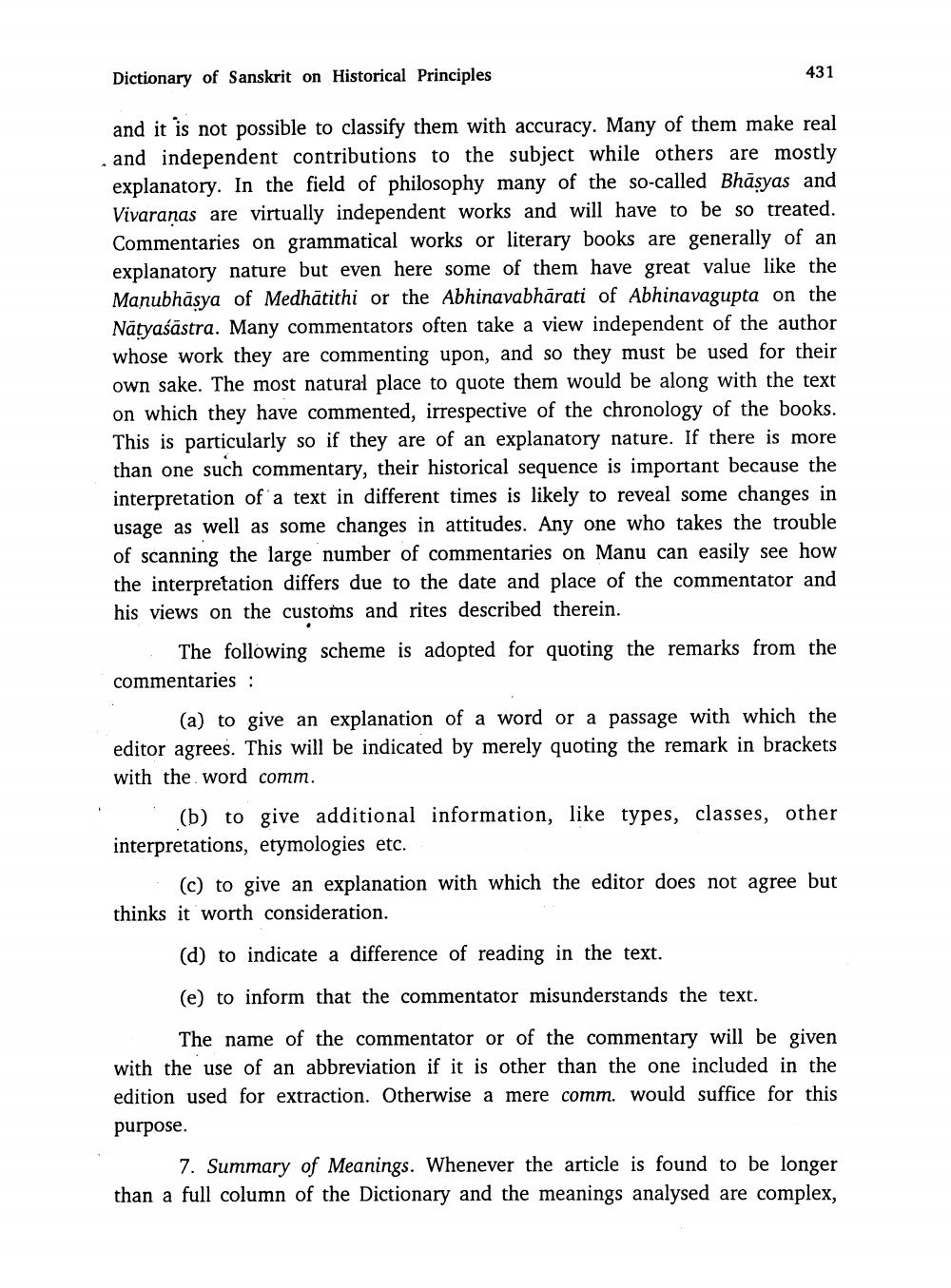________________
431
Dictionary of Sanskrit on Historical Principles
and it is not possible to classify them with accuracy. Many of them make real and independent contributions to the subject while others are mostly. explanatory. In the field of philosophy many of the so-called Bhasyas and Vivaranas are virtually independent works and will have to be so treated. Commentaries on grammatical works or literary books are generally of an explanatory nature but even here some of them have great value like the Manubhasya of Medhätithi or the Abhinavabhärati of Abhinavagupta on the Natyaśāstra. Many commentators often take a view independent of the author whose work they are commenting upon, and so they must be used for their own sake. The most natural place to quote them would be along with the text on which they have commented, irrespective of the chronology of the books. This is particularly so if they are of an explanatory nature. If there is more than one such commentary, their historical sequence is important because the interpretation of a text in different times is likely to reveal some changes in usage as well as some changes in attitudes. Any one who takes the trouble of scanning the large number of commentaries on Manu can easily see how the interpretation differs due to the date and place of the commentator and his views on the customs and rites described therein.
The following scheme is adopted for quoting the remarks from the commentaries:
(a) to give an explanation of a word or a passage with which the editor agrees. This will be indicated by merely quoting the remark in brackets. with the word comm.
(b) to give additional information, like types, classes, other interpretations, etymologies etc.
(c) to give an explanation with which the editor does not agree but thinks it worth consideration.
(d) to indicate a difference of reading in the text.
(e) to inform that the commentator misunderstands the text.
The name of the commentator or of the commentary will be given with the use of an abbreviation if it is other than the one included in the edition used for extraction. Otherwise a mere comm. would suffice for this purpose.
7. Summary of Meanings. Whenever the article is found to be longer than a full column of the Dictionary and the meanings analysed are complex,




